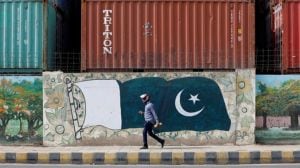Syrian quagmire
Saturdays attacks appear to confirm the dangers of Syrias conflict spilling over
Turkeys southern border areas,with their ethnic and religious mix,are in the direct line of fire if the conflict in Syria were to spill over,just as the whole of Lebanon could be engulfed by its spreading flames,with consequences for Israel. Saturdays twin car bombs in Reyhanli,which killed 46 people,saw an exchange of recriminations between Ankara and Damascus,with Turkish authorities laying the blame on Bashar al-Assads intelligence apparatus. Damascus has blamed Ankara. But Turkish Prime Minister Recep Tayyip Erdogans calls for unity were provoked by the tangible danger of deepening tensions between Turks and the Syrian refugees in southern Turkey. The likelihood of violent reprisals is strong,with Syrian refugees homes and cars already becoming the target of local anger.
Erdogans dilemma is how to respond firmly while keeping Ankara out of the Syrian quagmire. His Syria policy is also under attack. Turkeys decision to aid and support the rebels is cited by his detractors as one reason so many Syrian refugees sought shelter in Turkey. The divided UN Security Councils failure to stem the civil war and US President Barack Obamas overcautious approach saw Ankara get involved on its own against Assads regime. The blowback,its feared,is Reyhanli.
The onus for ending the bloodshed,and thereby preventing a larger conflagration in the Middle East,ultimately rests on Washington and Moscow,who have climbed down from their hitherto rigid and opposing positions. But the tenuous agreement between them,as seen during US Secretary of State John Kerrys recent visit to Moscow,is only a first step. The international community must push the belligerents in Syria towards the negotiating table. That may not preclude,however,the need for enforcing a no-fly-zone along the Syria-Turkey border to protect the Syrian refugees.
- 01
- 02
- 03
- 04
- 05































